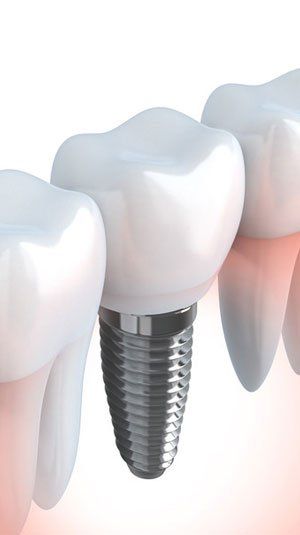Wisdom Teeth Information
Wisdom teeth information from All Smiles in Finchley
What issues can lower wisdom teeth cause?
Lower wisdom teeth are the last teeth to develop in your jaws and often there is not enough space for them to grow as other teeth would. Their growth can be impacted by other teeth or their position within the jaw. This can lead to issues such as pain, swelling or infection. Can lead to decay in the tooth and also cause pericoronitis. Sometimes the wisdom tooth can be developing lower down in the jaw and there could be a high risk of a problem that you are not yet aware of. Any issues that do develop can also affect other teeth and lead to long-term damage.
How All Smiles can help:
We provide a comprehensive dental service that includes the treatment and monitoring of wisdom teeth. We always keep you fully informed about possible issues we can see arising and recommended treatments.
- Wisdom teeth referrals - Some wisdom teeth can be straightforward to remove, while others may need a specialist consultant or Oral Surgeon. At All Smiles in Finchley, we are able to provide hospital referrals if needed and will always ensure you have all the information you need to make an informed choice about wisdom teeth removal.
- Wisdom teeth reviews - If the wisdom teeth are in a position where they are not causing any problems and there is a low risk of issues developing, we can provide routine checks and reviews. This can include regular dental x-rays. It is important to have the teeth reviewed regularly to ensure any changes are caught and treated in good time.
- Wisdom teeth treatments - Treatments that can be carried out include full wisdom tooth removal, partial removal, cleaning and more.
Lower wisdom tooth removals
If the wisdom tooth has not fully erupted into the mouth it is often necessary to make a cut in the gum over the tooth. Sometimes it is also necessary to remove some bone surrounding the wisdom
tooth. The tooth may need to be cut into 2 or 3 pieces to remove it. Once the wisdom tooth has been removed the gum may need to be put back into place with stitches, however the stitches are not always necessary. In the majority of cases these stitches are dissolvable
and take around two weeks to disappear. You may be given an antibiotic prescription after the extraction.
It is likely that there will be some discomfort and swelling both on the inside and outside of your mouth after surgery. This is usually worse for the first three days but it may take up to two weeks before all the soreness goes. You may also find that your jaw is stiff and may not be able to open fully. You will need to eat a soft diet for a week or so. There may be some bruising of the skin of your face that can take up to a fortnight to fade away.
Wisdom tooth removal can be carried out using different methods and options. Anaesthetic is usually used. This could be:
Local anaesthetic
- this is an injection into gum surrounding the wisdom tooth. The injection takes a couple of minutes to numb the area and means that you will feel no pain while the wisdom tooth is removed.
Local anaesthetic and intravenous sedation
– in addition to a local anaesthetic injection you can be given an injection into your arm. This makes you feel relaxed and less aware of the procedure. You are awake but patients frequently have little or no memory of the operation.
General anaesthetic
– it is usually possible to remove wisdom teeth under a “day case” general anaesthetic at a hospital
Possible side effects and risks involved
Bleeding
- There may be a little bleeding at the time of the extraction this usually stops very quickly and is unlikely to be a problem. If you are at home and the area bleeds again this can usually be stopped by applying pressure over the area for at least 10 minutes with a rolled up handkerchief or swab. If the bleeding does not stop, please contact the clinic.
Altered Sensation to the chin, lower lip or tongue
- Two nerves lie quite close to the lower wisdom teeth. The lingual nerve provides sensation in your tongue whilst the inferior dental nerve gives sensation to the lower lip and skin overlying the chin. Occasionally these nerves may be bruised during tooth removal. If this happens then you may have either numbness or pins and needles in either the tongue, lower lip, skin over the chin or any combination of these. It may take up to 18 months for this to recover. Rarely the nerve may not recover fully and you may be left with small patches of numbness to your lip or chin. Taste is rarely affected.
Infection
- An infection in the socket can occur or the blood clot from extraction could dissolve away resulting in a dry socket. The risk of this can be minimised by keeping the area clean. It is advisable not to smoke for a few days after having the wisdom tooth removed. Smoking can increase the risk of an infection or a dry socket. It may also be necessary for you to have a course of antibiotics after the extraction.
Weakening of the Jaw - In exceptional cases wisdom tooth removal can cause significant weakening of the jaw with the resultant possibility of jaw fracture.
More information and useful links:
Royal College of Surgeons of England: https://www.rcseng.ac.uk/
British Association of Oral and Maxillofacial Surgeons: https://www.baoms.org.uk/
British Association of Oral Surgeons: https://www.baos.org.uk/
© 2024. The content on this website is owned by us and our licensors. Do not copy any content (including images) without our consent.

